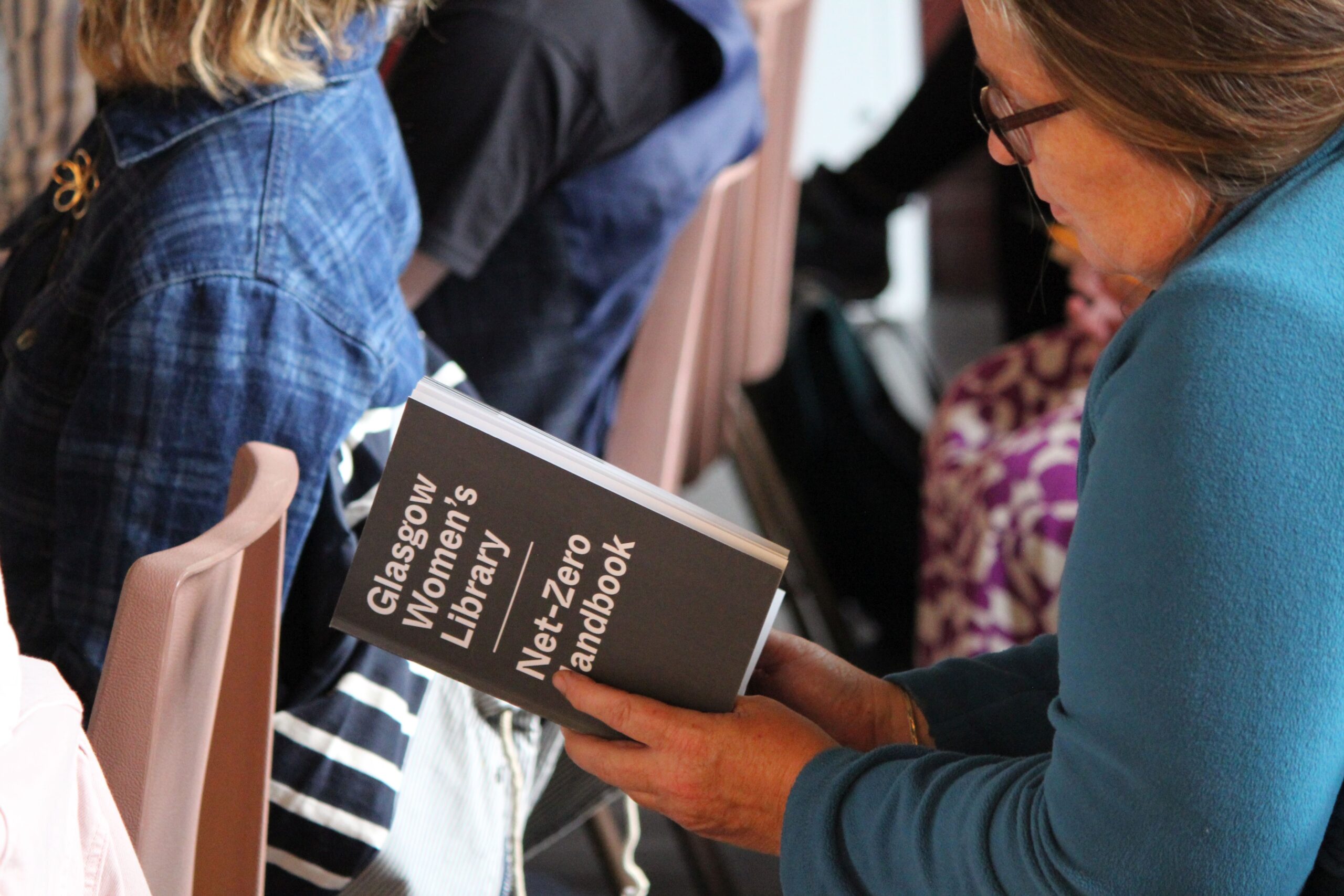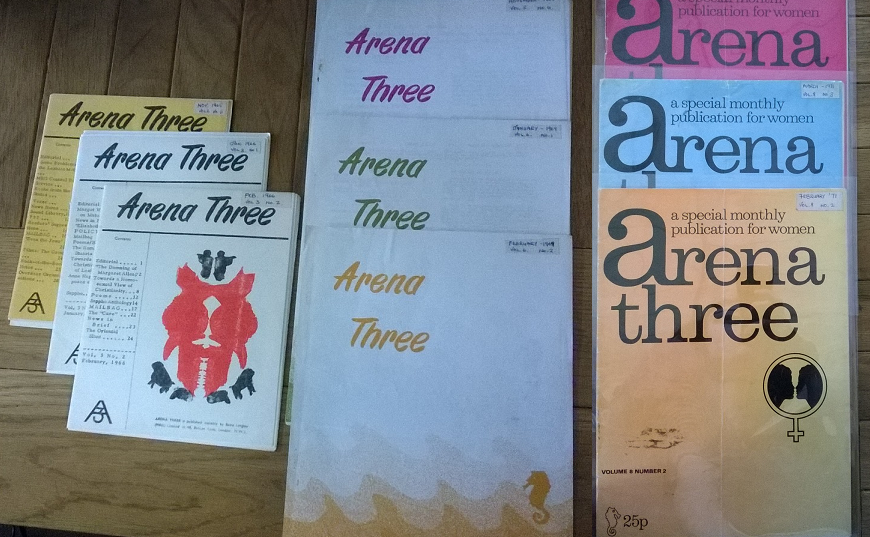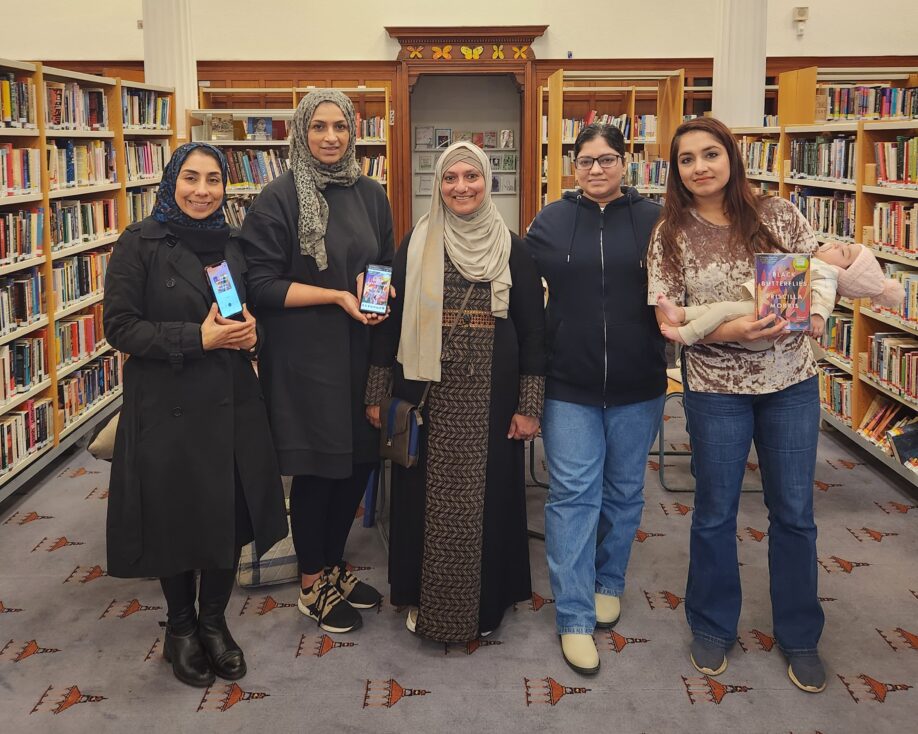This blog was researched and written by Beverly, who volunteers as a researcher and tour guide (amongst many other things). It is part of a wider programme of reflection on GWL’s 30 year history. You can read more about work, impact and achievements in the last three decades here.
In this and the following blog, I thought that it might be interesting to look at significant points of change in the life of Glasgow Women’s Library, as portrayed in the newsletters which were published by the GWL team from 1996 to 2008. (you can read my previous blog about GWL’s work on health and wellbeing documented in these newsletters here and there are other blogs about the newsletters which can be found here.)
In this first blog I examine the development of the Lifelong Learning programme, something that continues to nourish the life of those of us who are involved in the library today, sometimes without us even being aware of it. How many of us were aware that the Women’s Heritage Walks arose out of the Lifelong Learning programme?
Though lifelong learning had been fundamental to the library since its inception, in Winter 2001 a grant from Glasgow City Council meant that staff and other costs for a year were available to start to implement a resourced Lifelong Learning project.
The project aimed to
– Provide a programme of learning opportunities for women
– Develop the provision of adult literacy and numeracy opportunities
– Pilot an outreach or satellite library provision for women users of sister organisations.
Women would thus have the opportunity to explore and develop areas of interest to which they previously lacked access. Women who lacked facilities to study or who had felt diminished by learning in schools were afforded a second chance and a safe space where they could further their education in a supported environment.
Library staff began working on the appointment of a new dedicated worker and exploring the best way to provide tutoring and guidance. They sourced the equipment that would be required, including IT resources, and set aside funding to conduct research into the learning needs of women in Glasgow.
By winter of 2002, Adele Patrick, Sue John and several other members of the library staff undertook training for Lifelong Learning.
In the newsletter of that time, Patricia, a volunteer, wrote of her experience of a course titled ‘Get on the Net’. She learned how to set up an email address, send emails and add attachments. Importantly, Patricia hoped that acquiring such skills might help her in her quest to find paid employment.
Twenty years later, such IT skills may seem basic, but there are still women who remain digitally excluded, either through poverty, learning difficulties or other circumstances, so acquiring such skills in a safe, supportive environment remain vital.
Soon, over 50 women from Glasgow Women’s Library had completed Lifelong Learning courses in basic computer skills, learning about drugs, domestic violence and self-care and fitness. Two of the courses sound particularly attractive as they are titled ‘I feel Good’ and ‘Menopausal Zest’. I am sure that many of the women who currently attend Glasgow Women’s library would give their eye teeth for ‘menopausal zest’ today!
The most dramatic change resulted from adult literacy and numeracy provision which received funding from Glasgow City Council in 2003. A full-time Development Worker was appointed, and eight members of paid and unpaid staff undertook an introductory course to train Adult Literacy and Numeracy (ALN) tutors. Links were made with sister organisations in Glasgow and the overall aim was to identify the learning needs of women across the city and to de-stigmatise attitudes towards women with additional literacy and numeracy needs. The Literacy and Numeracy Project was formally launched on International Women’s Day on 7 March 2003, around the time it was announced that the library was seeking new premises due to the redevelopment of its Trongate premises (this was to become Trongate 103).
Despite this, and while seeking new premises, the library took over another floor at Trongate so as to accommodate the lifelong learning and adult literacy projects.
At this time, Tricia, a participant in the Adult Literacy and Numeracy Course wrote a very moving account of what it was like being a woman with a late diagnosis of dyslexia.
Initially, she was reluctant to attend the GWL course as she feared it would be just like school and there was no way she was going through that pain again ‘as it hurts’. Having finally plucked up courage to attend, and in the knowledge that she was dyslexic and not unintelligent, she stated
‘Now there is no holding me back. I am much more content with myself and my writing and spelling abilities. Now I know I can do it…but if you are told long and hard you are daft, you believe it. The literacy project has opened up a whole new world for me. I feel a part of the world and I want to be part of it.
Surely, there can be no greater testimony to the joy of Lifelong Learning?
In Winter 2003 the library received a state of the art laptop and a digital projector. Training was rolled out to staff and volunteers. Information on the digital divide was discussed with the aim of making skills available to people who would otherwise be excluded.
Glasgow City Council continued to support GWL’s Lifelong Learning through the Social Inclusion Budget, but the level of interest in the courses far exceeded funding. Despite this, ALN events continued apace with four of the learners participating in video and radio advertisements for the National Literacy Campaign while Deaf Connections had the GWL video ‘Literacy is For Me!’ translated into Sign Language.
The breadth of topics offered in lifelong learning expanded. Women’s lives were enriched by subjects as diverse as gardening and composting on GWL’s very own allotment, right through to drama workshops. In discussion with Stow College, Glasgow Women’s Library also became the venue for a Women’s Studies Course.
Partnerships were formed with the YWCA, Red Road Women’s Centre and the Calton Day Centre among other organisations.
Discussions were now in progress about the temporary move to 81 Parnie Street, prior to the move to the former Anderstson library in the Mitchell Library (which was at the time intended to be GWL’s permanent home). It was decided that, though the library would close to users and borrowers for a year, the Adult Literacy and Numeracy project and the Lifelong Learning Programme would continue.
In October 2005, women from the Lifelong Learning programme took part in the Glasgow 2020 project. They envisioned a woman-friendly city and developed the details of what a 30+ year old Women’s Library might look like. The project aimed to engage Library users and learners in defining their hopes and dreams for a future women’s Library.
As the library now celebrates its 30th birthday, one wonders how many of those dreams have been fulfilled or even exceeded. What would they think of us now?
With the move to 81 Parnie Street in October 2006 came the inception of the ‘Women Make History’ group. It was said to have ‘brought a whole new world to Glasgow Women’s Library with research, discussion and planning elements’. The pioneering women’s history walking tour of Glasgow’s West End that resulted was launched that June.
In awareness of Glasgow’s increasingly diverse population, Winter 2008 brought the launch of a new ESOL (English for Speakers of Other Languages) Course for black and minority ethnic women delivered at the library by new partners, Langside College.
Syma Ahmed (Black and Minority Ethnic Women’s Project) and Laura Dolan (Lifelong Learning Assistant) also joined the team.
In an article announcing these latest developments, Adele Patrick, who was at that time Lifelong Learning and Creative Development Manager, restated the definition of “learning”:
Learning at Glasgow Women’s Library is about increasing women’s skills, confidence, knowledge and understanding and in this way nurturing their desire to learn more.
The GWL Learning Team’s Mission is to make GWL’s library, archive collection and programmes meaningful and relevant to all women. In our learning environment, women share experiences, learn from each other and are encouraged to view their own and other women’s lives and achievements as historic and of importance.
And so say all of us! Here’s to the next 30 years!





